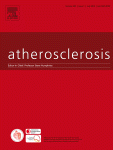 In a paper published in the journal Atherosclerosis, the authors of the published article – Effect of vitamin C on endothelial function in health and disease: A systematic review and meta-analysis of randomised controlled trials.[1] identified a specific improvement in one aspect related to arterial/vascular health, namely endothelial function.
In a paper published in the journal Atherosclerosis, the authors of the published article – Effect of vitamin C on endothelial function in health and disease: A systematic review and meta-analysis of randomised controlled trials.[1] identified a specific improvement in one aspect related to arterial/vascular health, namely endothelial function.
The normal artery contains three layers. The inner layer, the tunica intima, is lined by a monolayer of endothelial cells (EC) that is in contact with blood. The middle layer, or tunica media, contains smooth muscle cells embedded in a complex extracellular matrix. The adventitia, the outer layer of artery, contains mast cells, nerve endings and microvessels. The direct contact of ECs with the blood flow means that they are particularly vulnerable to damage molecules in the blood on one hand, and that they have ideally “guard” roles on the other hand (i.e., sensing alterations in perfusate constituents and either responding directly or transmitting reactive signals to nearby cells, such as smooth vascular cells).
Consequently endothelial dysfunction contributes to the development of nearly all vascular diseases.
Highlights
- Vitamin C supplementation improved endothelial function (EF).
- The effect of vitamin C appeared to be dependent on health status.
- Stronger effects in those with cardio-metabolic disorders.
- No effect of vitamin C was observed in healthy volunteers.
- Vitamin C dose greater than 500 mg/d was associated with beneficial effects on EF.
Background
Observational studies indicate that higher vitamin C intake is associated with reduced risk for cardiovascular diseases. However, randomised controlled trials (RCT) examining the effect of vitamin C on endothelial function (EF) have reported inconsistent results. The aims of this systematic review and meta-analysis were to determine the effect of vitamin C supplementation on EF and to investigate whether the effect was influenced by health status, study duration, dose and route of vitamin C administration.
Methods
We searched the Medline, Embase, Cochrane Library, and Scopus databases from inception to May 2013 for studies that met the following criteria: 1) RCT with adult participants, 2) vitamin C administered alone, 3) studies that quantified EF using commonly applied methods including ultrasound, plethysmography and pulse wave analysis.
Results
Pooling the data from 44 clinical trials showed a significant positive effect of vitamin C on EF (SMD: 0.50, 95% CI: 0.34, 0.66, P < 0.001). Stratification of the analysis by health outcome revealed improved EF in atherosclerotic (SMD: 0.84, 95% CI: 0.41, 1.26, P < 0.001), diabetic (SMD: 0.52, 95% CI: 0.21, 0.82, P < 0.001) and heart failure patients (SMD: 0.48, 95% CI: 0.08, 0.88, P < 0.02) after vitamin C supplementation. The effect size appeared to be unaffected by study design, duration, baseline plasma vitamin C concentration or route of administration of vitamin C. The meta-regression showed a significant positive association between vitamin C dose and improvement in EF (β: 0.00011, 95% CI: 0.00001, 0.00021, P = 0.03).
Conclusions
Vitamin C supplementation improved EF. The effect of vitamin C supplementation appeared to be dependent on health status, with stronger effects in those at higher cardiovascular disease risk.
Reference
